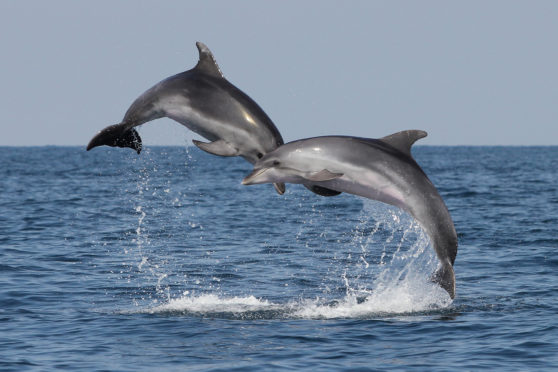Toxic chemicals linked to cancer and banned in the 1980s are still having an impact on marine life according to a St Andrews University-led study.
An international team of researchers found dolphins in the northern Adriatic harbour high levels of polychlorinated biphenyls, or PCBs, and are passing the contamination to their young.
The team studied bottlenose dolphins living in the Gulf of Trieste, off the coast of north east Italy.
They discovered 87.5% of dolphins had PCB concentrations above the toxicity threshold for the onset of physiological effects in marine mammals.
Scientists are concerned about the impact of the pollution levels, with PCBs having the ability to cause diseases including cancer and reproductive problems.
Tilen Genov, who is lead author of the study and a PhD student at St Andrews, said: “We have been studying these dolphins for over 16 years, so we know most of them well.
“Through long-term resighting histories of identified individuals, we were able to link PCB levels in individual dolphins to parameters such as sex, reproductive output and social group membership.
“The research showed that males have significantly higher pollutant concentrations than females.
“This is because females offload a substantial amount of their toxicological burden to their young through gestation and lactation.”
PCBs are electrical insulators widely used in electrical equipment until they were outlawed.










